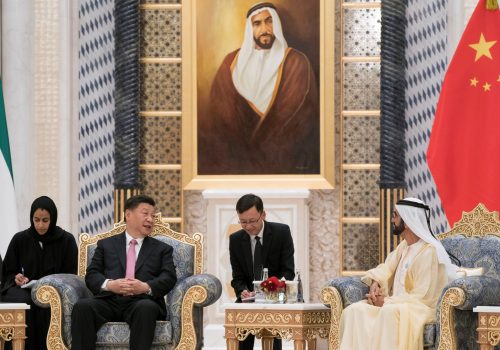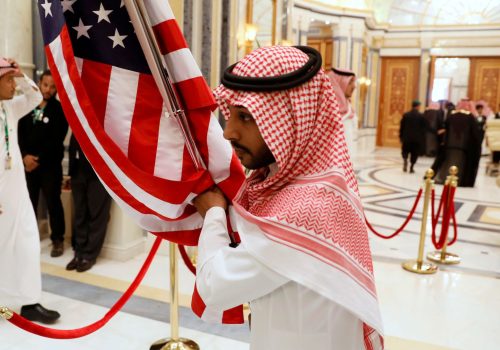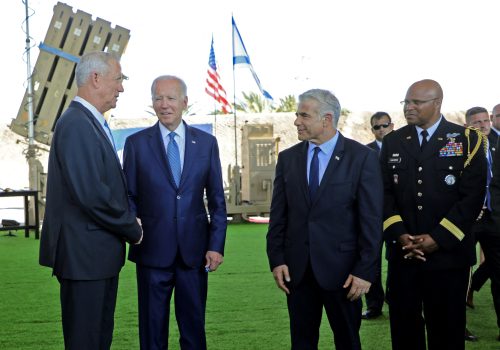Time heals all wounds. But will that work with Saudi Arabia and Turkey?
Does time make one forget resentments or do national interests triumph over friendships and enmities? The latter seems true for Turkish President Recep Tayyip Erdogan and Saudi Crown Prince Mohammed bin Salman (MBS).
In 2018, President Erdogan pointed the finger at the Saudi royal family and accused the Crown Prince—without naming him—for the murder of Saudi dissident journalist Jamal Khashoggi in the Saudi Consulate in Istanbul. Turkey helped the United Nations-led investigation by sharing evidence and opened a trial against plotters, while the US intelligence community accused MBS of directing the murder.
Four years later, first President Erdogan paid a visit to Riyadh in April to meet the Crown Prince and, on June 22, MBS’s visit to Turkey was his first since Khashoggi’s murder, following which diplomatic ties were severed.
The Turkey-Saudi Arabia rapprochement is part of a broader normalization strategy by Turkey with countries in the region, which became possible after the end of the Gulf rift. Turkey first restored relations with the United Arab Emirates (UAE) in 2021, then Israel this year, and now Saudi Arabia, while talks aimed at normalizing relations with Egypt are also progressing.
The rapprochement with all these countries is primarily an attempt by Turkey to be included in the regional calculus and end its regional isolation. The country was isolated in the East Mediterranean starting during the Donald Trump era, when Greece, Egypt, Cyprus, and Israel formed a platform to cooperate on the exploitation of gas, for which Saudi Arabia and the UAE also gave their support. Mending ties with Saudi Arabia would also help Turkish relations with other Arab countries, especially with Egypt.
From Turkey’s perspective, there are important economic interests at play, given the problems the Turkish economy, such as high inflation and the depreciation of Turkey’s national currency, the lira. Improving economic relations with Saudi Arabia is expected to contribute to easing the economic pressure on Turkey. Bilateral trade and tourism were severely affected in the last few years and this normalization is expected to bolster both trade and tourism between the two countries. The official end to the unofficial boycott imposed by Saudi Arabia on Turkish goods, which began in 2020; Saudi Arabia resuming flights to Turkey after a two-year pause in May; and the recent end of a ban on travel to Turkey; are promising developments on that front. As a result of this rapprochement, much-needed Saudi investment is expected in Turkey and, in the future, Riyadh may join other Gulf governments in currency swaps with Ankara.
For Saudi Arabia, the opportunity to restore better ties with Turkey is almost certainly perceived by Riyadh as having little downside. It is very likely that Riyadh views the strain in relations as hurting Ankara far more than it damaged Saudi Arabia. For all intents and purposes, the trip probably reflects MBS’s view that Saudi Arabia “won” the long-running standoff with Turkey and that the rapprochement, along with US President Joe Biden’s upcoming visit, will help the Crown Prince restore his global image.
Ultimately, the decision by Ankara, per Saudi request, to transfer the case against those accused of murdering Khashoggi, in April of this year, provided the opening for relations to be restored. Saudi Arabia has been at odds with much of Turkey’s foreign policy for the last decade. Riyadh’s decision in 2013 to support the coup d’etat that installed Egyptian President Abdel Fattah al-Sisi, while deposing the Muslim Brotherhood-linked President Mohamed Morsi, caused immediate tensions given Ankara’s support for Morsi. So too did various events later in the decade, including Erdogan’s decision to side with Qatar during the Gulf rift; Turkey’s fluctuating engagement with Iran; and Ankara’s position in support of the Libyan Government of National Accord, in contrast to Riyadh’s support for Libyan army chief Khalifa Haftar.
Riyadh is almost certainly not viewing this rapprochement as the beginning of a new strategic alliance but rather the restoration of a transactional relationship that has the potential to benefit both Ankara and Riyadh. By restoring ties, MBS is providing a path for Ankara to reengage in the region more fully—an opportunity the Crown Prince probably believes he can also take away in the future, if needed. With the Turkish lira having lost over half its value since 2021, inflation over 60 percent, and presidential elections set for next year, MBS probably judges that Erdogan needs him more than he needs Erdogan.
For MBS, his visit to Ankara could enable Turkey to contribute to Saudi Arabia’s efforts to create its own drone revolution in the context of Vision 2030, which puts emphasis on technology for economic growth and diversification. Recently, for instance, two Saudi manufacturers have started co-producing a Turkish-made medium-altitude, long-endurance drone named Vestel Karayel, reflecting the potential for tighter economic and defense ties, despite the myriad of other suppliers upon which the Saudis also rely on.
But, for Saudi Arabia, no benefit of rapprochement is more meaningful to Riyadh than the opportunity to mitigate threats associated with its fundamental security concern: Iran. Riyadh is probably hoping to be able to leverage the dynamics of its newly improved relationship with Ankara to cajole Turkey to be more neutral than it was during the Gulf rift. Saudi, Emirati, and Bahraini isolation of Qatar during the rift drove Turkey and Iran closer together, as both supported and sought to serve as alternative economic outlets for Doha. This, despite Turkey and Iran being at odds over critical regional issues—such as in Syria, where Iran has been Bashar al-Assad’s most aggressive supporter—while the Turks have backed the Syrian opposition, evidencing the oft-repeated idiom that Turkey and Iran are ‘occasional allies, enduring rivals’.
It isn’t a coincidence that this rapprochement is happening at a time when Turkey-Iran tensions are growing both in Iraq and Syria. Turkey’s role in different regional conflicts over the last decade—in Syria, Libya, Nagorno-Karabakh, and Ukraine—demonstrates the counterbalance that Turkey, along with other regional countries, can provide against Iranian influence.
So far, Riyadh’s goals may be coming to fruition. In recent months, pro-Iran news and media outlets warned against rapprochement between Turkey-Israel and Turkey-Saudi Arabia, to no avail. Then, in June, Israeli tourists visiting Turkey were targeted by Iranian-sponsored terrorists, resulting in close cooperation between the Turkish-Israeli governments to prevent any attack. Combined with Turkey and Saudi Arabia’s rapprochement now, Tehran is probably right to be concerned that Ankara will choose a path of neutrality in the growing hostilities between Iran and most of the region in the short term. It’s an open question as to whether Turkish-Saudi rapprochement can last in the long term, but, if it does, that’s likely to be bad news for Iran and good news for the rest of the region.
Pinar Dost is a deputy director at the Atlantic Council IN TURKEY Program. Follow her on Twitter @pdosting.
Jonathan Panikoff is the director of the Atlantic Council’s Scowcroft Middle East Security Initiative and the former deputy national intelligence officer for the Near East.
Further reading
Thu, Jul 14, 2022
Biden’s Middle East trip focuses on the region. But China is the elephant in the room.
MENASource By Ahmed Aboudouh
US President Joe Biden’s visit to the Middle East on 13-16 July won’t directly focus on China. However, the rising power will be the elephant in the room at the Saudi summit in Jeddah.
Tue, Jul 12, 2022
How to rescue and rebuild the US-Saudi relationship
New Atlanticist By Jonathan Panikoff
The United States cannot ensure its economic and national security as successfully without Saudi Arabia as a key ally.
Wed, Jul 13, 2022
US interests and capacity for Middle East stability exist, but President Biden must convey will
MENASource By R. Clarke Cooper
The US has the tools to be fully engaged in the region and, during his trip, the US president needs to strongly declare it to the entire region.
Image: Turkish President Tayyip Erdogan and Saudi Crown Prince Mohammed bin Salman meet at the Presidential Palace in Ankara, Turkey, June 22, 2022. Murat Cetinmuhurdar/PPO/Handout via REUTERS


